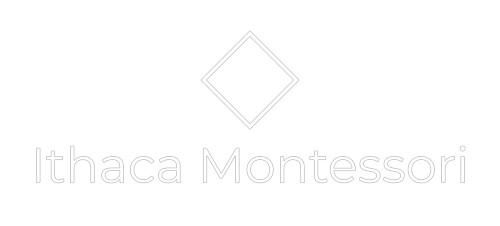The early years of your child’s life play a crucial role in their development. Research shows 700 new neural connections form every second during the first few years of a child’s life. As a result, children are more malleable to learning from their environment.
The Harvard Center on Developing Children refers to this period as early plasticity. They state that your child will respond to external stimuli around them. That means your child will learn from the environment by observing and reacting.
Once children cross the five-year mark, the brain begins to lose plasticity. Your child becomes set in their ways, meaning influencing them becomes harder for parents.
Hence, if you want to set your child up for maximum success later in life, you have to ensure you utilize their early childhood years to the fullest. Naturally, this makes selecting your child’s preschool one of the most important decisions of their life. The preschool you choose will help shape your child during their formative years.
Many parents often choose Montessori preschools for their children. Montessori education emphasizes self-learning, independence, and positive discipline. These fundamental principles of Montessori education make it a popular choice for parents.
Statistics show more than 5,000 Montessori preschools exist in the United States. If you’re selecting a Montessori preschool for your child, you’ll want to choose one that is right for you and your family. Therefore, you’ll want to ensure the school you choose embodies the key characteristics of a Montessori preschool.
Key Characteristics of a Montessori Preschool
Here are the key characteristics of a Montessori preschool:
Mixed-age Classrooms
Mixed-age classrooms are the hallmark of any Montessori preschool. Montessori preschools often place children between 2.5 and 5 years old together. Doing so creates an excellent learning atmosphere because the older children can serve as role models for their younger counterparts, learning leadership skills and empathy. Meanwhile, the younger children emulate their older peers, learning to carry themselves and engage with their classmates.
Self-learning Environment
Montessori preschools differ from traditional schools because they promote self-learning. Montessori preschools focus on individuality. They believe every child is different and learns at their own pace. Hence, you’ll find the curriculum in Montessori preschools are child-led instead of teacher-led.
Montessori schools create a conducive learning environment by giving children learning materials. These materials are self-correcting, meaning children can use them independently without the teacher’s help. In addition, these materials help children learn in a hands-on manner by using their direct experiences. Children use their senses of feel, touch, smell, taste, etc. Doing so helps them create vivid images and learn through visualization.
A Curriculum That Emphasizes Independence
At Ithaca Montessori, we place learning materials on our shelves for children to explore themselves whenever they feel comfortable. Children have different learning paces. For instance, one child’s interest in language development might occur when they’re three years old. On the other hand, another child might not show interest in the same topic until their fourth birthday. We, like other Montessori schools, don’t believe there’s a set time for teaching children these skills. Instead, we assess every child’s readiness to learn new material and work accordingly.
Music and Movement Education
At Montessori schools, children are free to move about the classroom as they please. They can pick and choose the learning materials they want. At Ithaca Montessori, we focus on movement and music education. For instance, we’ll teach children yoga and dance to help them be more in sync with their bodies. In addition, we also focus on mindfulness lessons like breathing exercises, centering, etc.
Furthermore, we believe music is an excellent way to support your child’s cognitive development. Research shows music education leads to children attaining higher scores in math and language tests. In addition, music education can also increase your child’s IQ level by nearly 20 percent. Some MIT researchers argue that music sensitivity might help your child’s cognitive development more than speech perception. Our music teacher, John Jackson, was also Bob Dylan’s guitarist. As a result, you can count on him to impart a wealth of musical knowledge to your child.
Amicable Atmosphere
Montessori preschools focus on creating an atmosphere where children have mutual respect for their peers and teachers. Montessori preschools teach children that their peers and teachers are part of a community that is focused on helping them grow and learn. The teachers are facilitators promoting their growth, while their peers are partners that help explore learning opportunities around them.
Ithaca Montessori: A Montessori preSchool in Nashville, TN
Are you looking to enroll your child in a preschool in Nashville, TN? Ithaca Montessori is a Montessori school that focuses on early childhood development. Our Kids Education Program can prepare your child for success later in life. Our Montessori is perfect for 2.5-5-year-olds. Visit our website for more information. Alternatively, contact us today to learn more.


